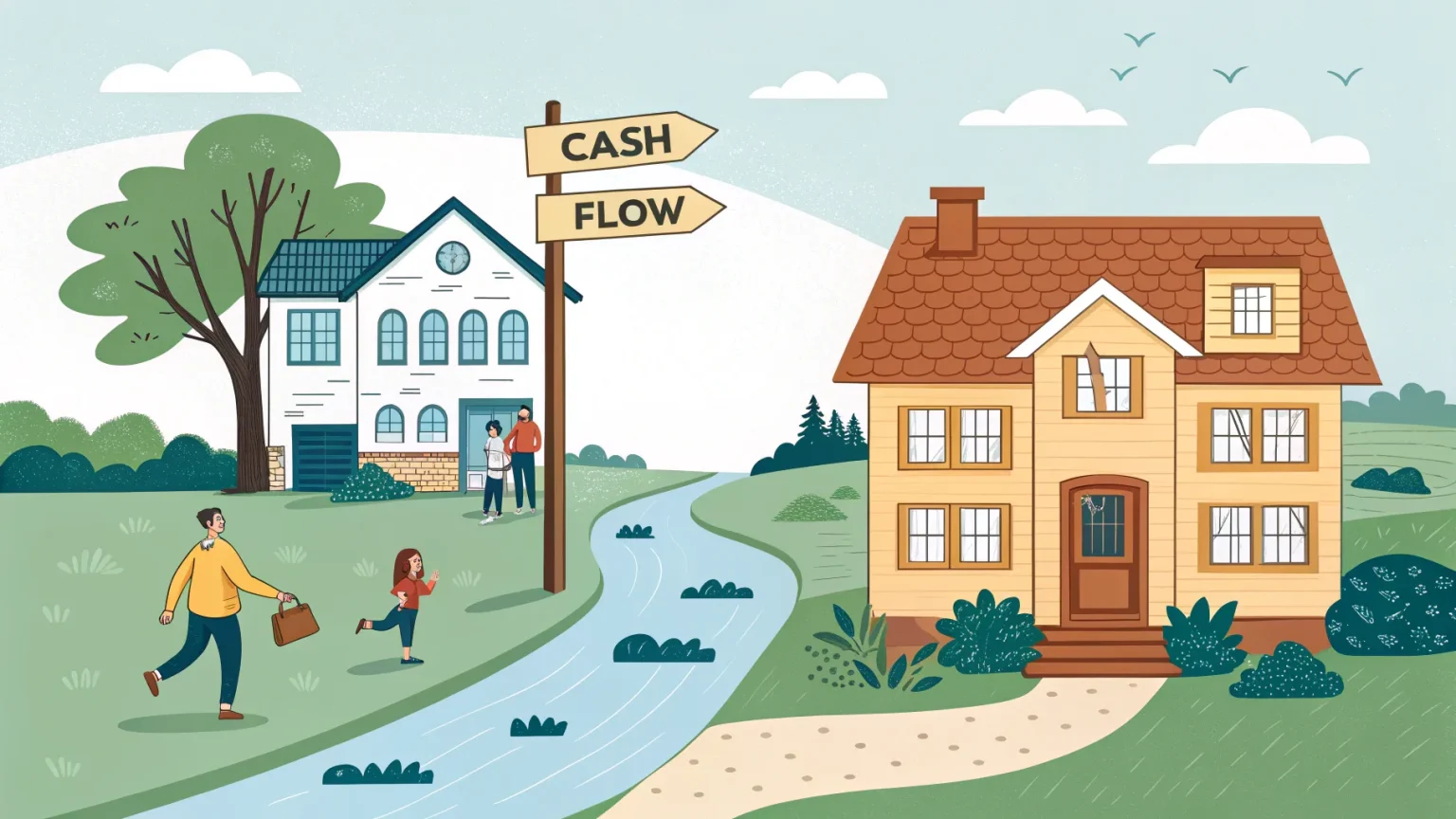When it comes to buying a home, your approach reveals more than just a financial decision—it exposes your entire money mindset. I’ve observed two distinct thinking patterns that shape not just how people purchase homes, but how they view wealth creation overall: ownership thinking and cash flow thinking.
Ownership thinkers proudly declare, “I don’t want house payments. I want to own it outright.” Meanwhile, cash flow thinkers assert, “I want my money working for me, not parked in my home.” This fundamental difference impacts every financial decision they make.
The Hidden Cost of “No Interest”
Here’s a truth many miss: you always pay interest—one way or another. If you pay cash for a home, you forfeit the right to earn interest on that money. This opportunity cost is real, even if it doesn’t show up on a monthly statement.
When you borrow, yes, you pay interest to the bank. But you maintain the ability to earn interest on your money elsewhere. This isn’t just about math—it’s about mindset and understanding your personal cost of money.
A Tale of Two Homebuyers
Let me illustrate with a simple example:
- The ownership thinker drops $400,000 to buy a home outright. No monthly payments, which feels great! But that $400,000 is now tied up in a lifestyle choice that doesn’t create cash flow.
- The cash flow thinker buys the same house but puts $80,000 down and finances $320,000 at about $2,500 monthly. This keeps $320,000 available for investments, opportunities, and freedom.
That $320,000 in accessible capital can be incredibly powerful. It represents options that the ownership thinker simply doesn’t have.
Beyond Rich vs. Poor
This isn’t about being rich or poor—it’s about strategy, options, and mindset. Some people genuinely sleep better without a mortgage hanging over their head. Others rest easy knowing they have substantial liquid assets available should an opportunity arise.
There’s no universal right answer here. The key question is: Is your home decision based on fear, status, or strategy?
Wealth isn’t about owning everything. It’s about knowing what to own and when.
I’ve coached countless business owners through this decision, and what I’ve found is that those who approach home buying strategically rather than emotionally tend to build wealth more effectively.
The Freedom Factor
Cash flow thinking provides something that ownership thinking often restricts: freedom. With capital at your disposal, you can:
- Seize unexpected business opportunities
- Weather financial storms without selling assets at a loss
- Make investments that generate returns exceeding your mortgage interest
- Maintain flexibility in an unpredictable world
By age 26, I had become a multimillionaire not by tying up all my capital in assets I “owned,” but by maintaining liquidity that allowed me to move quickly when opportunities presented themselves.
Making Your Decision
Your home purchase approach should align with your broader financial goals. If having no mortgage payment brings you peace that outweighs potential investment returns, ownership thinking might be right for you. If maximizing growth potential matters more, cash flow thinking could serve you better.
What matters is that you make this decision consciously, not defaulting to what parents, friends, or financial gurus prescribe. Your financial strategy should be as unique as your fingerprint.
Remember that wealth building isn’t about following rules—it’s about creating a strategy that works for your specific situation, goals, and psychology. Sometimes, the conventional wisdom of “pay off your house as quickly as possible” might be exactly wrong for your circumstances.
The next time you face a significant purchase decision, ask yourself: Am I thinking like an owner or a cash flow strategist? The answer might reveal more about your financial future than you realize.







